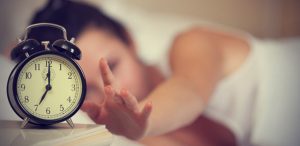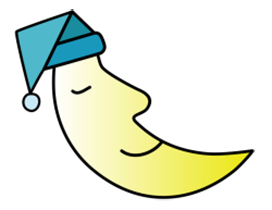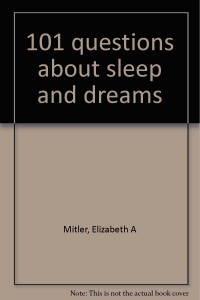The simple answer to that question is “that amount of sleep that allows you to be wide awake and alert the whole following day”. The real question is, “How can I find out if I need more or less than 8 hours of sleep?”
First you must establish a constant wake up time 7 days a week for at least 2 weeks. Assuming you do not have a sleep pathology like obstructive sleep apnea, you start with the knowledge that a normal average person needs about 8 hours of quality sleep per night. Why? Because about 40% of our total sleep time is “deep and restorative sleep” meaning 25% of our total sleep time is dream sleep (REM) and 15% of sleep time is slow wave sleep (delta). Simple math tell us that 40% of 8 hours is 3.2 hours of deep sleep. However, there are some rare individual that get 3.2 hours of deep sleep in only 4 hours of total sleep. On the other extreme are some unfortunate people that require 10 hours of total sleep to get the 3.2 hours of deep sleep. Over the years of sleep research, 3.2 hours has been the average number of deep sleep hours an individual needs to stay fully awake during the following day.
With the above facts let’s assume you need closer to 8 hours. To find your ideal sleep time, start with less than 8 hours sleep, i.e: 6 hours. If your normal sleep schedule is between 11p.m.-7a.m., stay awake until 1a.m. and wake up at the normal 7a.m. From there you progressively go to sleep 15 minutes earlier (12:45, 12:30, 12:15) each night until it takes longer than 10 minutes to fall asleep. That sleep time is your ideal duration of sleep. It may be slightly less than 8 hours or more than 8 hours but this is your ideal total sleep time.
In regards to children and adolescents in their second decade i.e.: between 10-20 years of age, it has been found that they require a minimum of 9 hours and 45 minutes. Stated another way if they only sleep 8 hours they are sleep deprived.
I hope this information is helpful to you in your quest for restful and restorative sleep. Should you have any questions about this or another sleep matter please do not hesitate to call us at 636-936-1809.
Richard E. Parcinski,
D.O. ,F.C.C.P. Fellow of American Academy of Sleep Medicine




